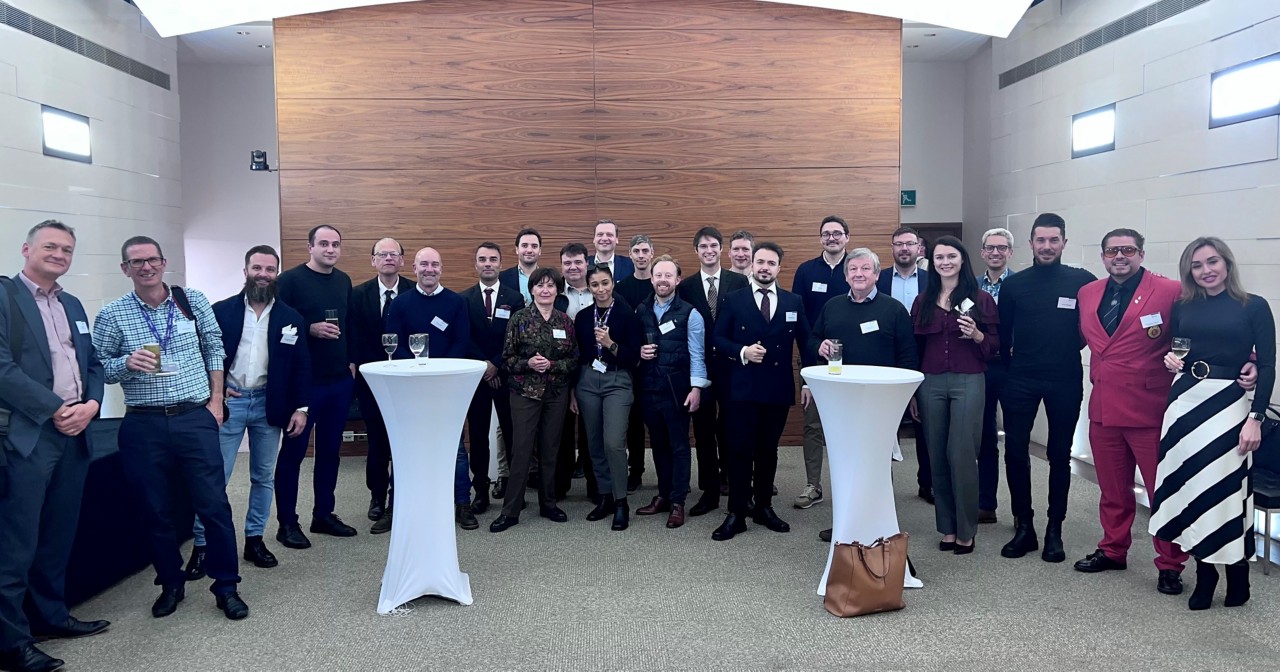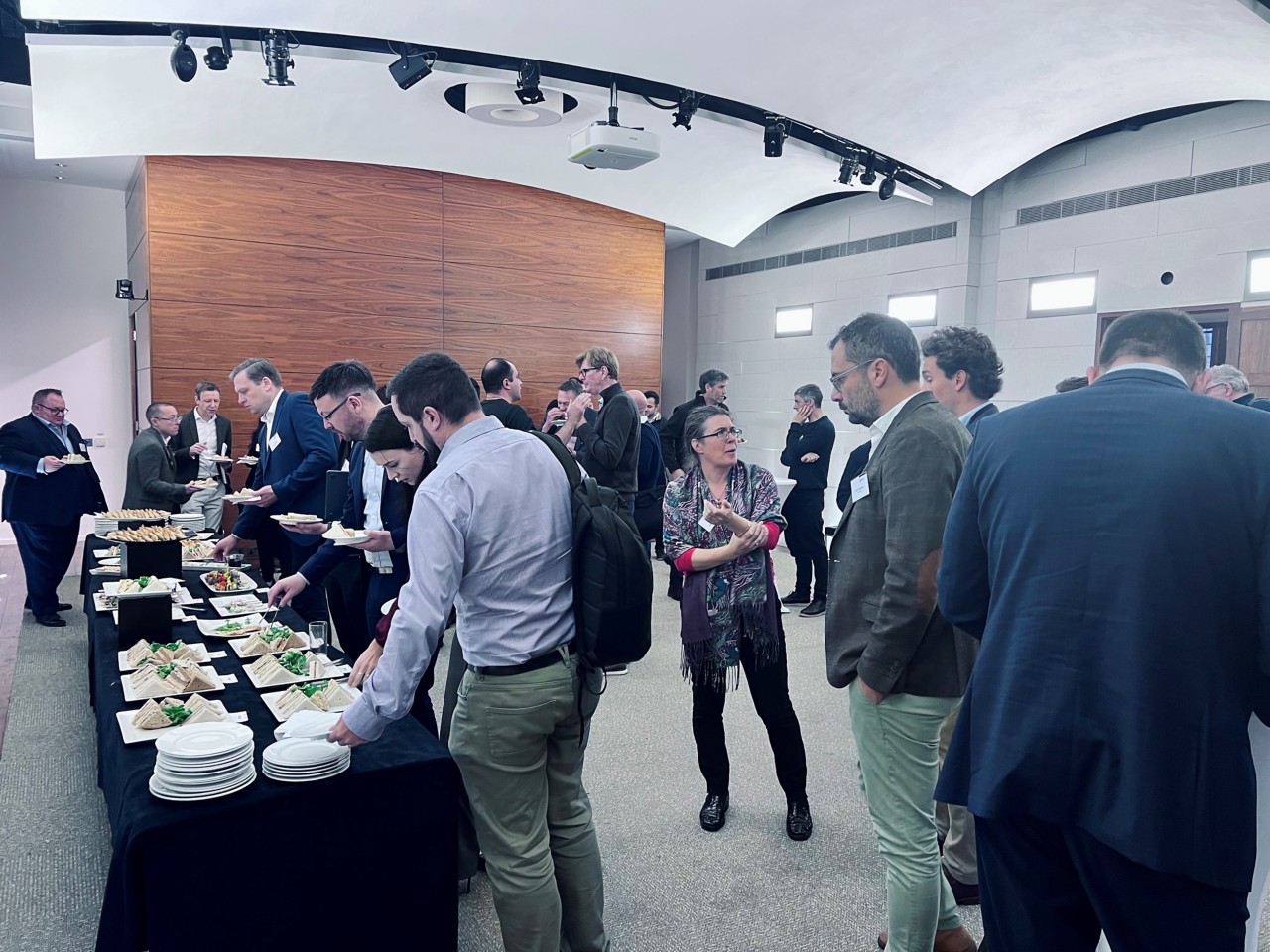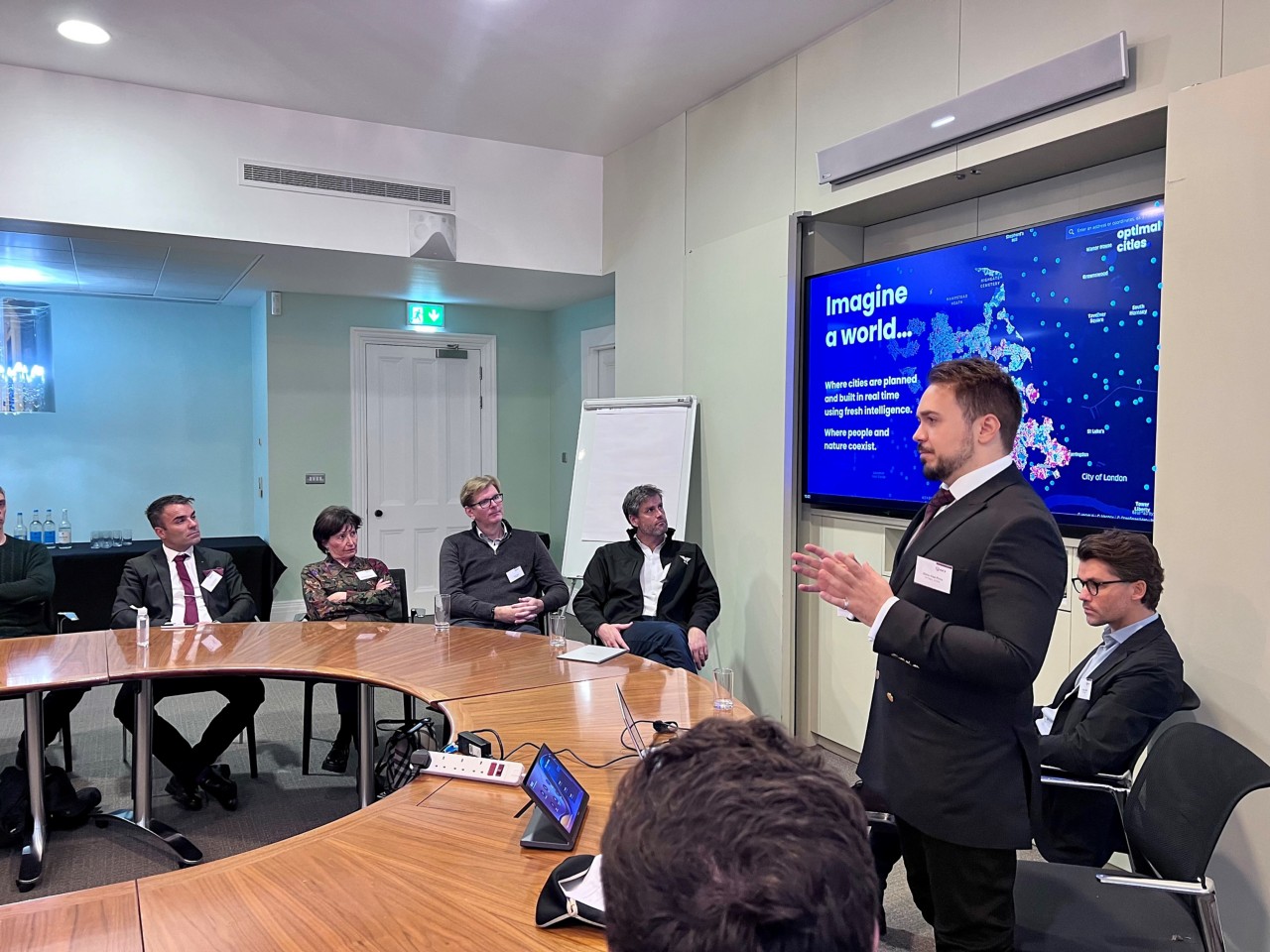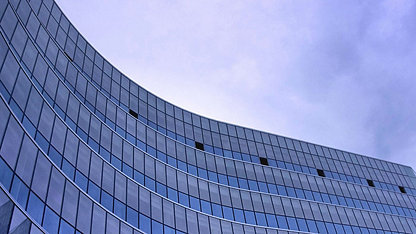In this article, we look back at the continuing digital transformation of the built and natural environment over the course of 2023. With the emergence of new technologies such as generative AI, the sector has continued to embrace change and to seek out new ways to integrate these innovations into its core processes, as well as reimagining the way the sector functions.
RICS Tech Partner Conference 2023: Shaping the future of built environment technology
A significant milestone during 2023 was the RICS Tech Partner conference held in November. The first in-person event for the programme brought together tech partners from a diverse range of practice areas at RICS’ headquarters in Parliament Square, London.
The conference explored:
- digital transformation in construction
- the evolving landscape of building surveying in the digital age
- the role of FinTech in the built environment
- cybersecurity challenges
- ESG principle
- sustainable construction practice
- digitisation of data in property management
- discussions on artificial intelligence's (AI) current and emerging applications
- ethical considerations and
- advancements in automated valuation models (AVMs).
Video discussions: A window into industry insights
We recorded and published over 82 video discussions during 2023. These sessions served as a powerful window into the industry's collective insights, providing a platform for experts to share perspectives and discuss technology insights. Here are the three most viewed videos of 2023:
1. RIB Software: Transforming construction with technology
Andrew Knight and Mads Bording explored the potential of digital technology and data in the construction industry. Mads Bording, Chief Strategy Officer and Chief Marketing Officer of RIB Software, shared valuable insights on digital transformation, digital twins and technology's pivotal role in construction. Topics included the evolution of digital twins, benefits for decision-making and risk mitigation, advocacy for open ecosystems, and the future landscape of the industry, focusing on technology adoption to address labour shortages and sustainability concerns.
https://www.rics.org/news-insights/transforming-construction-with-technology
2. NCG and Univers: Energy management and sustainability within the real estate sector
Andrew Knight spoke to Camille Herinckx from NCG and Tim Parsons from Univers. Their conversation focused on energy management and sustainability in the real estate sector, covering areas such as data analytics and metering systems, energy storage solutions, IoT and real-time monitoring, predictive analytics, compliance and carbon reporting, and the importance of integration and data sharing.
3. Real Estate Analytics: How AI is revolutionising the residential real estate industry
Andrew Knight spoke with Jean-Michel Paul from Real Estate Analytics, shedding light on the distinctive application of AI in commercial versus residential real estate. The discussion explored potential beneficiaries, how to address industry issues, regional variations in the application of AI, the significance of images in residential data lakes, and AI's role in supporting the maturity of residential real estate as an asset class. The conversation concluded by pondering the future trajectory of AI in the residential real estate industry, highlighting its potentially revolutionary impact.
https://www.rics.org/news-insights/how-ai-is-revolutionizing-residential-real-estate-industry
Continued expansion of the Tech Partner Programme and emerging themes
During 2023, the Tech Partner Programme added over 140 new partners. These partnerships brought additional perspectives and expertise, reflecting the sector’s diverse landscape across the land and property life cycle and across the globe. Here are some of the key themes from 2023.
Artificial intelligence (AI)
Perhaps unsurprisingly, there has been a noticeable surge in Tech Partners offering AI-based solutions in the real estate and construction industry.
As an example, Stonal has leveraged AI to enhance data quality at scale. As a leading artificial general intelligence platform for multi-class real estate asset owners and managers, Stonal utilises AI to extract reliable data from primary sources like leases and contracts. Founded in 2017 and having raised €20 million, Stonal's platform is deployed on over 200 million sqm in Europe, contributing to better decision-making for property owners and managers through complete and accurate data-driven insights. Stonal's AI-powered SaaS platform aims to optimise the overall value and liquidity of property portfolios.
Augment reality (AR)
Darabase, has introduced an innovative property inventory platform for AR advertising campaigns. Their platform, darabase.io, empowers property owners to register Property Digital Rights (PDRs), dictating rules for digital content in their locations and providing an additional income stream through AR advertising in the real world. With an increasing number of AR-enabled devices globally, Darabase addresses the crucial aspect of property owners safeguarding and controlling the use of their properties for AR content, ensuring a secure and ethical framework.
Sustainability and energy efficiency
As we continue the journey towards net zero, there has been a notable rise in firms offering sustainable and energy-efficient solutions to address challenges in the built environment. During the construction phase, Qualis Flow’s product QFlow emerges as a key player in promoting sustainability. QFlow uses artificial intelligence to facilitate real-time materials and waste data collection at the source for construction teams, offering a streamlined approach to address the industry's increased investment pressure to decarbonise, mitigating the high cost of errors, and alleviating administrative/reporting pressures.
Cercula stands out as a significant contributor to sustainable construction practices. Providing a leading life cycle assessment software, Cercula strategically designs the carbon out of buildings. Cercula's impact extends across carbon monitoring, regulatory compliance and the optimisation of designs for low embodied carbon.
Integration
Depending on which statistic you base your conclusions, there are upwards of 10–20 thousand firms providing AI, data and technology solutions across the built and natural environment. From the perspective of end users, this presents a variety of issues when selecting vendors, not least around procurement, supplier management and technical integration. A common anecdotal quote from end-users of ‘having to open yet another tab on their web browser’ to access a variety of dashboards as they navigate their so-called ‘tech stack’. As the sector matures, we are seeing the emergence of firms such as Tech Partner SEKTOR who, in the area of construction, are offering integration and implementation services.
Building surveying
Across building surveying, companies such as RaSpect and HEROTECH8 are providing examples of new technologies.
RaSpect use AI to deliver a predictive inspection system, integrating and analysing data from satellite, IoT sensors and automatic drone inspections.
HEROTECH8, a robotics and software development company, is at the forefront of drone automation with its connected drone-in-a-box technology. This innovation facilitates 24/7 automated drone missions, eliminating the need for on-site pilots. The system’s automatic deployment, recovery and recharging capabilities provide immediate global access to live-feed data.
What to expect in 2024
We are currently gathering responses from our annual Tech Partner survey and we aim to publish the results in spring 2024.
AI, in all its forms, has become pervasive across the data and technology space and the release of various generative AI has raised awareness and interest in its potential. In recognition of increasing impact across the built and natural environment, we will be working to produce content to help the sector to maximise the opportunities and manage the associated risks.

















